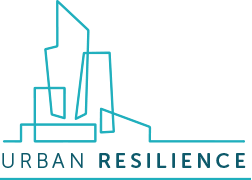Building resilience to water crises is one of the primary challenges facing cities today. The pressures are particularly acute in sub-Saharan Africa, where rapid rates of urbanization and economic growth – combined with the challenge of climate change and unsustainable water management practices – are creating both slow burn and rapid onset water stress.
This Fellowship explores the factors shaping the response of households and firms to the threat of water shocks in four major cities and how their actions can affect the wider resilience of the places where they live and surrounding communities.
One trend that is visible across half of sub-Saharan Africa is the fall in the proportion of the urban population supplied by piped public water supplies and a corresponding rise in the proportion reliant on non-piped supplies. Typically, these non-piped supplies are based on accessing groundwater reserves. A related trend is the substantial proliferation of urban boreholes commissioned privately by households and firms to secure their own, self-supplied, access to water. Where people are unable to rely on provision by public providers they take matters into their own hands, often using unqualified drillers and inappropriate technologies. This raises critical questions for the stewardship of groundwater resources, return on investment in water infrastructures, the economic future for cities, and the distributional consequences for who has what access to water.
Responding to this societal challenge, UKRI has financed a 7-year programme of research in Cape Town, Dar-es-Salaam, Lagos and Windhoek to explore how firms and households respond to water shocks and water stress, what shapes these responses and how those responses impact upon the opportunities available to others, the surrounding urban environment and the overall resilience of the city. Financed through a Future Leaders Fellowship the programme examines the positive role groundwater can play in promoting urban resilience, but also the risks of over-abstraction and potential contamination. It combines research into urban water governance, hydrogeological contexts, social learning, behavioural psychology and socio-economic outcomes.
The Fellowship is held by Dr. Adrian Healy, an economic geographer based at Cardiff University. In addition to his academic experience in the fields of innovation and urban resilience, Adrian has an extensive background of undertaking high-level policy research and consultancy for public sector clients including UK government, the EU and the OECD.
The Fellowship is supported by UN-Habitat, WaterAid, the Stockholm International Water Institute, ARUP, British Geological Survey, the University of Cape Town, University of Ibadan, University of Namibia and the respective urban authorities. The Fellowship involves a range of wider engagement activities to stimulate debate and encourage the development of effective governance and policy-making.
For further information or to become involved please contact:Adrian Healy at: Healya2@cardiff.ac.uk
